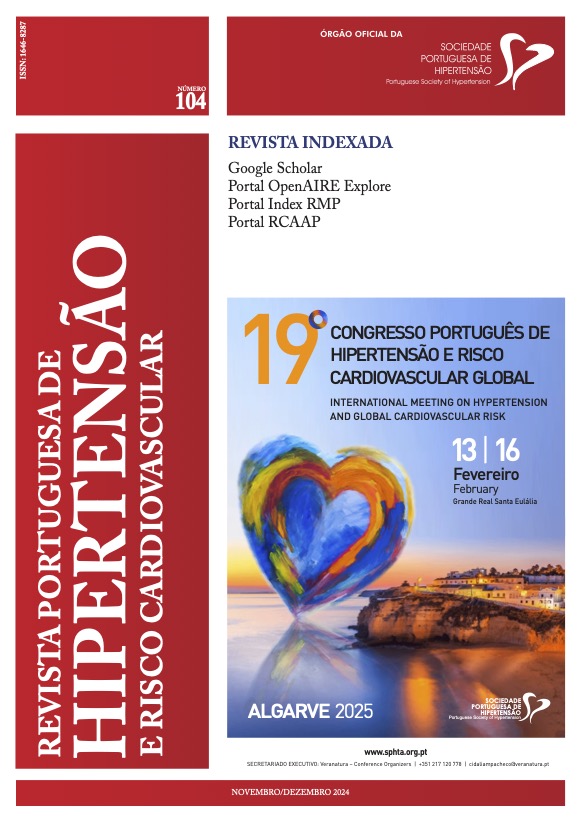Therapeutic Adhesion And Medical Inertia In Hypertension
DOI:
https://doi.org/10.58043/rphrc.148Downloads
References
Lindenfeld J, Jessup M. ‘Drugs don’t work in patients who don’t take them’ (C. Everett Koop, MD, US Surgeon General, 1985). Eur J Heart Fail. 2017;19:1412–1413. doi: 10.1002/ejhf.920.
Osterberg L, Blaschke T. Adherence to medication. N Engl J Med. 2005;353:487–497. doi: 10.1056/NEJMra050100; Gossec L, Tubach F, Dougados M, Ravaud P. Reporting of adherence to medication in recent randomized controlled trials of 6 chronic diseases: a sys.
Vrijens B, Vincze G, Kristanto P, Urquhart J, Burnier M. Adherence to prescribed antihypertensive drug treatments: longitudinal study of electronically compiled dosing histories. BMJ. 2008;336:1114–1117. doi: 10.1136/bmj.39553.670231.25.
Lebeau J-P, Biogeau J, Carré M, et al. Consensus study to define appropriate inaction and inappropriate inertia in the management of patients with hypertension in primary care. BMJ Open 2018;8:e020599. doi:10.1136/ bmjopen-2017-020599.
World Health Organization. Adherence to Long Term Therapies: Evidence for Action; Geneva: World Health Organization, 2003.
Vrijens B, De Geest S, Hughes DA, Przemyslaw K, Demonceau J, Ruppar T, Dobbels F, Fargher E, Morrison V, Lewek P, Matyjaszczyk M, Mshelia C, Clyne W, Aronson JK, Urquhart J; ABC Project Team. A new taxonomy for describing and defining adherence to medicat.
Michel Burnier, Brent M. Egan. Adherence in Hypertension A Review of Prevalence, Risk Factors, Impact, and Management Circulation Research 2019;124:1124-1140. DOI: 10.1161/ CIRCRESAHA.118.313220.
Pathak, A., Poulter, N. R., Kavanagh, M., Kreutz, R., & Burnier, M. (2022). Improving the Management of Hypertension by Tackling Awareness, Adherence, and Clinical Inertia: A Symposium Report. American journal of cardiovascular drugs : drugs, devices, and.
O’Connor PJ, Sperl-Hillen JM, Johnson PE, Rush WA, Biltz G. Clinical Inertia and Outpatient Medical Errors. In: Henriksen K, Battles JB, Marks ES, Lewin DI, editors. Advances in Patient Safety: From Research to Implementation (Volume 2: Concepts and Metho.
Hill MN, Miller NH, Degeest S, Materson BJ, Black HR, Izzo JL Jr, Oparil S, Weber MA; American Society of Hypertension Writing Group. Adherence and persistence with taking medication to control high blood pressure. J Am Soc Hypertens. 2011;5:56–63. doi: 1.
Gellad WF, Grenard JL, Marcum ZA. A systematic review of barriers to medication adherence in the elderly: looking beyond cost and regimen complexity. Am J Geriatr Pharmacother. 2011;9:11–23. doi: 10.1016/j.amjopharm.2011.02.004.
Weiner SJ, Schwartz A, Sharma G, Binns-Calvey A, Ashley N, Kelly B, Dayal A, Patel S, Weaver FM, Harris I. Patient-centered decision making and health care outcomes: an observational study. Ann Intern Med. 2013;158:573–579. doi: 10.7326/0003- 4819-158-8-20.
Claudio Borghi & Arrigo F.G. Cicero (2021) Improving adherence with treatment-resistant hypertension, Expert Opinion on Pharmacotherapy, 22:11, 1373-1375, DOI: 10.1080/14656566.2021.1915290.
Ferrari, P., the National Coordinators for the Reasons for not Intensifying Antihypertensive Treatment (RIAT) trial. Reasons for therapeutic inertia when managing hypertension in clinical practice in non-Western countries. J Hum Hypertens 23, 151– 159 (200.
Josiah Willock R, Miller JB, Mohyi M, Abuzaanona A, Muminovic M, Levy PD. Therapeutic Inertia and Treatment Intensification. Curr Hypertens Rep. 2018 Jan 29;20(1):4. doi: 10.1007/s11906-018-0802-1. PMID: 29380142; PMCID: PMC6452867.
Adam J. Rose, MD MSc , Dan R. Berlowitz, MD MPH, Meredith Manze, MPH, Michelle B. Orner, MPH, and Nancy R. Kressin, PhD. Comparing Methods of Measuring Treatment Intensification in Hypertension Care Circ Cardiovasc Qual Outcomes. 2009 July ; 2(4): 385–391.
Nietert PJ, Wessell AM, Feifer C, Ornstein SM. Effect of terminal digit preference on blood pressure measurement and treatment in primary care. Am J Hypertens. 2006 Feb;19(2):147-52. doi: 10.1016/j.amjhyper.2005.08.016. PMID: 16448884.
WHO model list of essential medicines - 21st list, 2019; available online at https://www.who.int/publications/i/item/ WHOMVPEMPIAU2019.06. [Online]
He, J., Irazola, V., Mills, K. T., Poggio, R., Beratarrechea, A., Dolan, J., Chen, C. S., Gibbons, L., Krousel-Wood, M., Bazzano, L. A., Nejamis, A., Gulayin, P., Santero, M., Augustovski, F., Chen, J., Rubinstein, A., & HCPIA Investigators (2017). Effect.
Huebschmann, A.G., Mizrahi, T., Soenksen, A., Beaty, B.L. and Denberg, T.D. (2012), Reducing Clinical Inertia in Hypertension Treatment: A Pragmatic Randomized Controlled Trial. The Journal of Clinical Hypertension, 14: 322-329. https:// doi.org/10.1111/j.
Rea F, Corrao G, Merlino L, Mancia G. Initial Antihypertensive Treatment Strategies and Therapeutic Inertia. Hypertension. 2018 Oct;72(4):846-853. doi: 10.1161/ HYPERTENSIONAHA.118.11308. PMID: 30354712.
Jaffe, M. G., Lee, G. A., Young, J. D., Sidney, S., & Go, A. S. (2013). Improved blood pressure control associated with a large- scale hypertension program. JAMA, 310(7), 699–705. https:// doi.org/10.1001/jama.2013.108769.
Lebeau, JP., Cadwallader, JS., Aubin-Auger, I. et al. The concept and definition of therapeutic inertia in hypertension in primary care: a qualitative systematic review. BMC Fam Pract 15, 130 (2014). https://doi.org/10.1186/1471-2296-15-130.
Foskett-Tharby, R., Nick, H., & Gill, P. (2016). Pay for performance and the management of hypertension. Journal of translational internal medicine, 4(1), 14–19. https://doi. org/10.1515/jtim-2016-0004.
Downloads
Published
How to Cite
Issue
Section
License
Copyright (c) 2024 Vitória Cunha

This work is licensed under a Creative Commons Attribution 4.0 International License.




